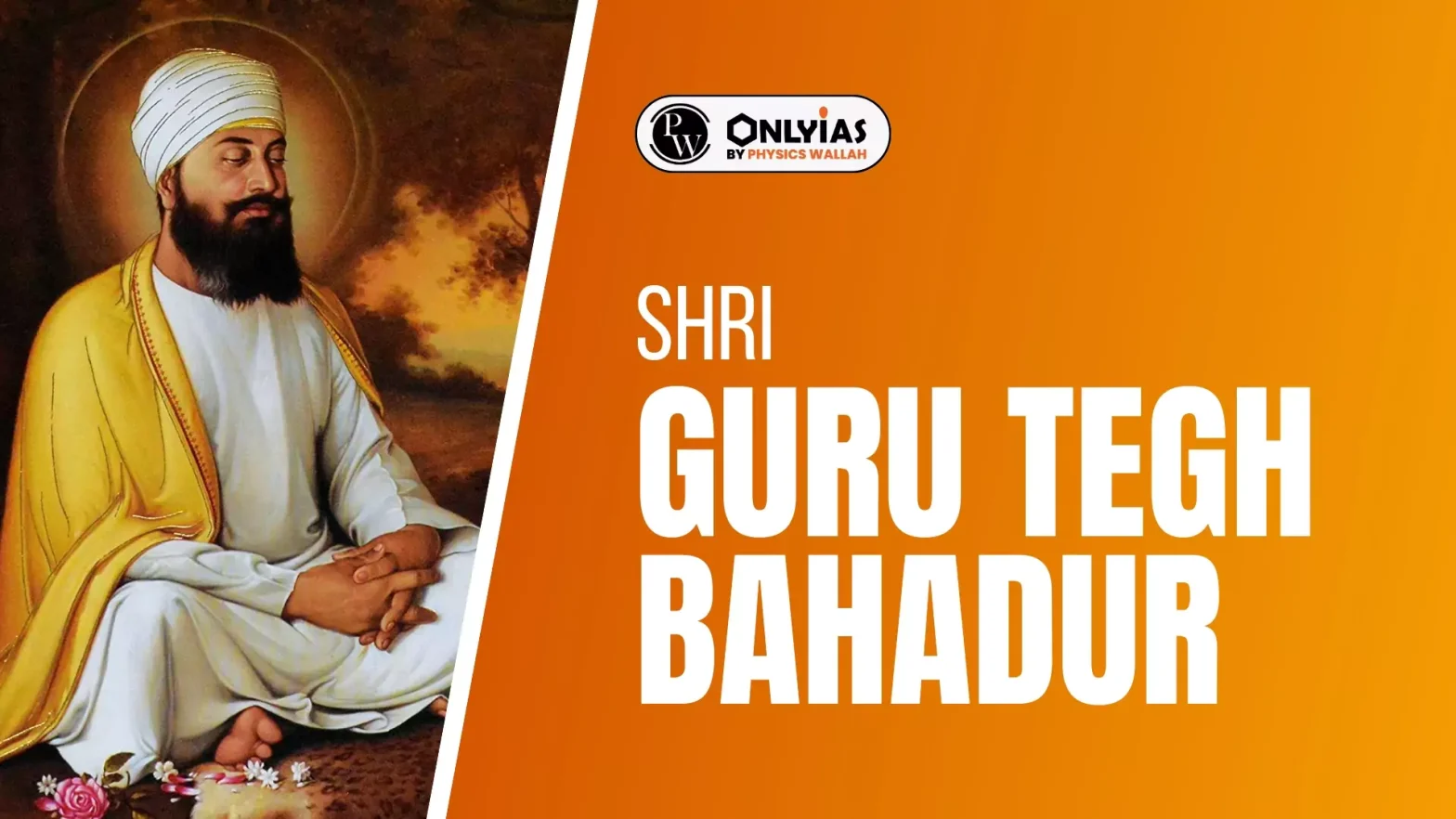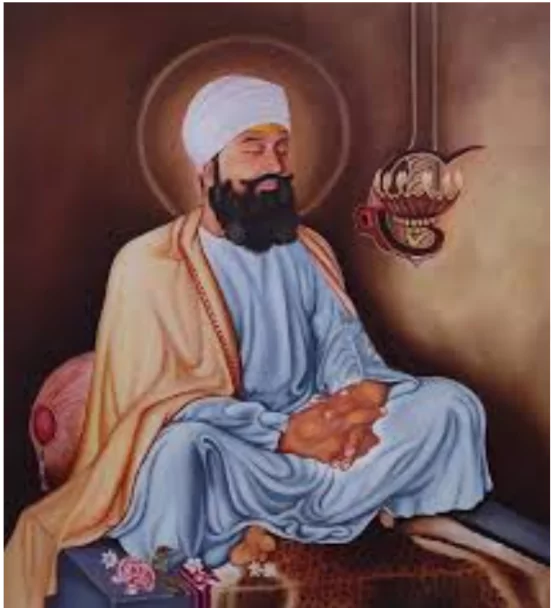Guru Tegh Bahadur Shaheedi Diwas 2025 is observed on 24 November to honor the ninth Sikh Guru’s supreme sacrifice for religious freedom. He is known for his unwavering stand for religious freedom and human rights. Know his biography, teachings, and legacy.

Shri Guru Tegh Bahadur, the ninth Sikh Guru, is revered for his profound teachings and ultimate sacrifice to uphold religious freedom. His life and legacy continue to inspire millions. Guru Tegh Bahadur’s life exemplifies the principles of courage, compassion, and unwavering faith, leaving an indelible mark on Sikh history and the broader tapestry of human rights advocacy. Delves into his biography, significance, and the observance of the 350th Shaheedi Diwas of Sri Guru Tegh Bahadur.
Guru Tegh Bahadur Ji Martyrdom Day is observed every year on 24th November to honor the sacrifice of Guru Tegh Bahadur Ji, the ninth Sikh Guru. He bravely gave his life in 1675 to protect the religious freedom of people and stood against forced conversions. In 2025, this important day will be observed on Monday, 24th November, with prayers and special events remembering his courage and sacrifice for humanity.
Guru Tegh Bahadur was the ninth of the ten Sikh Gurus, known for his spiritual depth and unwavering commitment to justice. Born on April 1, 1621, in Amritsar, he was the youngest son of Guru Hargobind, the sixth Sikh Guru. His early life was marked by rigorous training in martial arts, archery, and horsemanship, alongside spiritual education. He earned the name ‘Tegh Bahadur’ (Brave Sword) for his valor in battles against Mughal oppression.

Born on April 1, 1621, in Amritsar, Punjab, Guru Tegh Bahadur was the youngest son of Guru Hargobind, the sixth Sikh Guru, and Mata Nanaki. Originally named Tyag Mal, he exhibited profound spiritual inclination from a young age. His father bestowed upon him the name ‘Tegh Bahadur’ (Mighty of the Sword) after witnessing his valor in battles against Mughal forces.
Guru Tegh Bahadur spent several years in meditation and spiritual pursuits. In 1664, following the demise of Guru Har Krishan, he ascended to the position of the ninth Sikh Guru. His tenure was marked by extensive travels across the Indian subcontinent, spreading the teachings of Sikhism and establishing new congregations.
Guru Tegh Bahadur’s teachings emphasized the importance of living a truthful life, maintaining high moral standards, and upholding human rights. He composed 115 hymns, which are included in the Guru Granth Sahib, the central religious scripture of Sikhism. His hymns advocate for detachment from materialism and devotion to God.
The Guru Tegh Bahadur Shaheedi Diwas 2025 is being observed on 24 November 2025, commemorating the martyrdom of India’s ninth Sikh Guru. It marks his supreme sacrifice in 1675, when he stood up for religious freedom and was executed under the Mughal Emperor Aurangzeb for refusing forced conversions. Numerous states, including Delhi and Uttar Pradesh, have declared public holidays on 25 November as part of the observance. Below are the key reasons why 350th Shaheedi Diwas of Sri Guru Tegh Bahadur is celebrated:
Guru Tegh Bahadur’s legacy is a testament to his unwavering stand for justice and religious tolerance. He is often referred to as ‘Hind Di Chadar’ (Shield of India) for his defense of the oppressed. His son, Guru Gobind Singh, succeeded him as the tenth Sikh Guru and continued his mission of upholding righteousness.
The Sikh faith was shaped by ten successive Gurus:
Understanding the life and contributions of Guru Tegh Bahadur is crucial for UPSC aspirants, especially in the context of Indian history and culture. His unwavering stand for justice and human rights exemplifies the values enshrined in the Indian Constitution. His teachings on tolerance, humility, and courage are pertinent to the ethical dimensions of governance and public administration.
Ready to boost your UPSC 2025 preparation? Join PW’s UPSC online courses today!
UPSC Exam 2025 Related Articles
UPSC Prelims 2025 Exam
UPSC Notification 2025
UPSC Preparation 2025
UPSC Eligibility 2025
UPSC Exam Pattern
UPSC Syllabus
Guru Tegh Bahadur was the ninth Sikh Guru, known for his spiritual teachings and martyrdom in defense of religious freedom.
Shaheedi Diwas 2025, commemorating Guru Tegh Bahadur's martyrdom, will be observed on December 6.
His teachings emphasize living a truthful life, detachment from materialism, and devotion to God.
His son, Guru Gobind Singh, became the tenth Sikh Guru after his martyrdom.
He is called 'Hind Di Chadar' (Shield of India) for sacrificing his life to protect religious freedom and the oppressed.
Guru Tegh Bahadur, the ninth Sikh Guru, founded Anandpur Sahib in June 1665.
The Guru Tegh Bahadur Shaheedi Diwas for 2025 is observed on 24 November 2025.

<div class="new-fform">
</div>